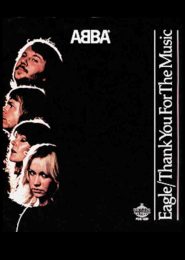The Rolling Stones: Gimme Shelter (1970)
In 1970, the documentary film Gimme Shelter directed by Albert and David Maysles, along with Charlotte Zwerin, captured the tumultuous final weeks of The Rolling Stones’ 1969 US tour. The film’s title is borrowed from the iconic track “Gimme Shelter” from the Stones’ album Let It Bleed. This counterculture-era documentary aligns with the Direct Cinema movement, characterized by its reactive approach to capturing events as they unfold naturally, without staged interviews or voiceovers.
The film provides a raw and unfiltered glimpse into the rock ‘n’ roll lifestyle, juxtaposing electrifying concert footage with behind-the-scenes negotiations and the tragic events that unfolded during the Altamont Free Concert. Here’s a closer look at the key elements:
- Madison Square Garden Concert: The film features segments from the Stones’ Madison Square Garden concert, later immortalized on their live album Get Yer Ya-Ya’s Out! The Rolling Stones in Concert. We witness Mick Jagger’s magnetic stage presence and the band’s electrifying performances.
- Recording Sessions: The Stones are seen recording tracks like “Brown Sugar” and “Wild Horses” in Muscle Shoals, Alabama. The creative process unfolds, revealing the magic behind their music.
- Altamont Speedway: The heart of the film lies in the ill-fated Altamont Free Concert, held outside San Francisco on December 6, 1969. The Hells Angels, armed with pool cues, provide security. As the day progresses, the atmosphere turns dark due to rampant drug use and alcohol consumption. The tragic climax occurs when a young man named Meredith Hunter is killed during the concert. The Stones’ performance is marred by chaos and violence.
- Behind-the-Scenes Negotiations: The film delves into the deal-making that led to the Altamont concert. Attorney Melvin Belli negotiates tirelessly to make the event happen, capturing the tension and stakes involved.
- Hells Angels and Chaos: The focus shifts to the Hells Angels, who were hired as security. Their clashes with the audience escalate, culminating in Meredith Hunter’s tragic death. The film captures the unraveling of the peace and love ethos of the 1960s.
Gimme Shelter serves as a haunting time capsule, encapsulating the end of an era—the dream of love, music, and freedom shattered by violence. The Stones’ music reverberates through the chaos, leaving an indelible mark on rock history. The film screened at the 1971 Cannes Film Festival, forever etching the Altamont tragedy into our collective memory.




